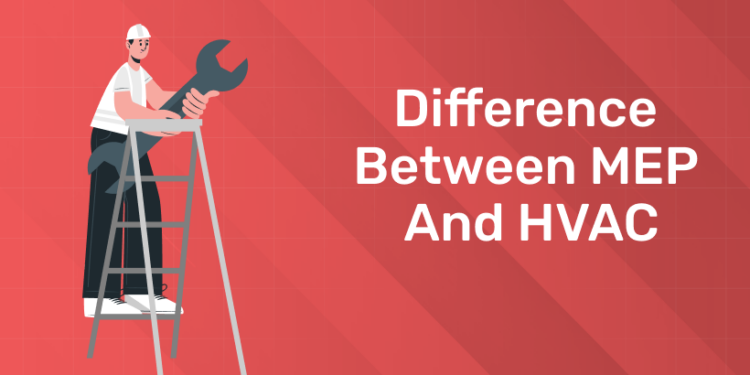Table of Contents
You heard about HVAC and MEP and wondered whether they are the same. People often tend to get confused with these terms. If you would like to know what is the difference between MEP and HVAC, this article is for you.
HVAC is a subset of MEP. MEP deals with the mechanical, electrical and plumbing aspects of a building while HVAC deals with components such as air conditioners, heaters, and mechanical ventilators to create a comfortable and pleasant atmosphere. MEP encompasses all the elements necessary to ensure a building’s efficient and secure operation.
Elevate your career with our comprehensive MEP Course! Get Free Demo Here!
What is MEP?
MEP is the acronym for Mechanical, Electrical and Plumbing. It’s a branch of engineering that deals with designing and implementing heating and ventilation circuits, electrical systems and plumbing of buildings. Hence MEP systems are considered as the backbone of a building.
There will be a lot of interaction between the mechanical, electrical and plumbing systems of a building. MEP systems help avoid any sort of conflict between these systems. The system is designed and planned in such a way that it helps provide efficiency, perfect planning, cost effectiveness and makes the structure habitable and functional.
MEP systems are essential for the safety of the buildings. The meticulous planning by MEP engineers help ensure optimal performance of the various integrated systems.
What is HVAC?
HVAC is the acronym for Heating, Ventilation, and Air Conditioning. It is the system that regulates the movement of air between indoor and outdoor areas thus heating and cooling both residential and commercial buildings.
HVAC system takes in air, cools or heats it, and then blows it into an indoor space. This movement of air increases comfort inside a building or a room. They also are the system that filter and clean indoor air by drawing it through filters that remove dust particles, spores, bacteria etc. It improves the indoor air quality and maintains humidity at optimal comfort levels.
The mechanism of HVAC system is to take in fresh air and use a mechanical ventilation system to heat or cool it to a desired temperature. HVAC systems use a combination of components such as a furnace, air conditioner, and air handler.
Join Entri’s HVAC Course for a rewarding Career!
Difference Between MEP and HVAC
- MEP refers to the electrical, mechanical, and plumbing aspects that has to be considered throughout the design and construction of buildings, one of which is HVAC. On the other hand, the goal of HVAC is to provide conditioned and purified air.
- An MEP engineer has to plan and design the mechanical, electrical, and plumbing systems and also maintain the standards, inspection procedures, and evaluation tools. HVAC engineers are mechanical engineers skilled in fields such as electrical or plumbing. They are involved in the installation of a climate control system.
- The MEP designs are much simpler than that of HVAC. Hence maintenance is easier in MEP as it would involve repairing of fewer moving parts than there would be with an HVAC system.
- Another difference is that MEP systems use electricity and HVAC systems use gas or steam to produce heat and cooling.
- The tools or equipment used in both the systems are different. HVAC technicians use cooling coils, fans, pumps, ductwork etc whereas electricians use meters, electrical boxes, wires, and cables while plumbers use pipes, valves, faucets, joints and adapters.
- MEP engineers design systems for every space within a building. They cover all the aspects of mechanical, electrical and plumbing systems including HVAC. This helps in reducing the cost as opposed to hiring different people for each system.
- The mechanical aspect of HVAC is a superset of HVAC. It encompasses the HVAC system and ensures human comfort and machine performance. The plumbing aspect includes plumbing for HVAC systems, among several other things like sewerage system, draining, fuels, portable water, water heater, and compressed air.
|
Engineering Upskilling Courses
|
| MEP Course |
Conclusion
The two systems, MEP and HVAC, are interconnected and to get the best out of them, they have to work together from the design process, through installation and during operation.
Join Entri Elevate’s NSDC certified MEP Design Course. You get job-oriented training, a comprehensive curriculum, and placement assistance. The inclusive and immersive hybrid training sessions include more than 80 live and recorded sessions. You get trained by industry experts which helps elevate your skills and prepares you by instilling the skills needed for the job. The icing on the cake is the guaranteed placement support.










